Grgur S. Translated by: Dr. Dorothy McClellan
ACCESSING SCHENGEN AND THE EUROZONE: CROATIA IS FINALLY REALLY RECOGNIZED
Now that the majority of the most visible international media are comparing Croatia to leading European countries such as Germany and Sweden, we have a completely reliable sign that Our Beautiful Homeland is moving in the right
direction, no matter how much some people hate to admit it. When Croatia is compared with the countries with which it forms a natural geographical unit, and with which it shared both the state framework and ideological destiny during the dreary 20th century only to eventually join them in European integration (after a delay), things are not so bad at all. Even in the context of the past months of the record breaking inflation not seen in decades....
What is inflation like in Croatia and comparable countries?
At least that’s what the data collected by Eurostat on the trend of inflation in the second half of 2022 in Croatia and five Central European countries show. In the graph below, the most recent numbers from December 2022 are highlighted.
In order to dispel possible suspicions, it should first of all be emphasized that the inflation rate in Croatia for December 2022 (12.7%) differs slightly from that communicated to the Croatian public (13.0%) due to the application of different calculation methodologies. In Croatia the Consumer Price Index (CPI) is used as an indicator of inflation, while a slightly different, standardized measure is used for comparison with inflation in other EU countries - the Harmonized Index of Consumer Prices (HIPC).
The data for January, when the direct impact of the introduction of the euro in Croatia on inflation will be seen, will be available in February. Nevertheless, it is reasonable to assume that the adjustment to the euro by setting and rounding the prices according to the euro exchange rate of all links in the chain (manufacturers, suppliers, retailers, etc.) was mostly carried out in the previous months, simply because it was more convenient to do it under the guise of inflation due to other current reasons. Consequently, the inflationary effect triggered by the introduction of the euro took place to a large extent even before its introduction into circulation. In spite of this, during all this time, Croatia still recorded noticeably lower inflation than countries where this influence does not exist.
In curbing the inflationary blow, as in many other things, only neighboring Slovenia is more successful. Bearing in mind the widespread accusations of rising prices in Croatia beyond the limit of tolerability due to the introduction of the euro, it is particularly interesting to note that in the countries that have the euro, or it was certain that they will have it soon (Slovenia, Croatia. and Slovakia), inflation in the observed period is visibly lower than in those countries that are not even considering introducing it (Hungary, the Czech Republic, even Poland.)
One of the many advantages of membership in the Eurozone is that it has a beneficial effect on the cost of borrowing, that is, refinancing existing debt. Thus, the price of the 10-year Croatian government bond is already lower than, for example, that of the Czech Republic, although the latter is still a step ahead in most economic indicators. Here, of course, it should be kept in mind that market professionals did not wait for Croatia to formally introduce the euro, but already included that event in their calculations as soon as it became certain. Croatia’s success in this field is also evidenced by the fact that for some time now it has been able to borrow more cheaply than even Italy, with which, by the way, it has shared almost the same inflation rate for the last 3 months. This is completely logical, since Croatia imports the most goods from Italy, and with it the inflation there.
More favorable borrowing compared to many others leaves more room for interventions aimed at mitigating price increases. Therefore, although other governments faced with inflation of this scale certainly did not stand idly by, the Croatian government could prove to be extremely active - from the reduction of VAT to the significant mitigation of the growth of energy costs for all stakeholders, and even limiting the prices of fuel and key foodstuffs. In the end, it is the inflation figures in relation to other countries in the same group that tell the most about whether the government reacted in time. If more could have been done, and it always can be, comparison with counterparts shows that there is no word here about any kind of silent observation of some kind of collapse and cataclysm, as heard from the mouths of dilettantes dedicated to inflationary politics, proverbially inexperienced in handling numbers, who now have no other choice, but to point the finger at the exceptions and portray them as the rule. But then why is the government, seemingly a bit populist, calling out traders for hunting in the dark right now? This is done, not so much because of their sins in the past, but for the sake of the future. Is this just a coincidence?
Not only does it not act too late, as suggested by the opposition and media sympathetic to them, but quite the opposite. The government acts preventively by creating an atmosphere that will lead traders to think again and again whether and to what extent they will resort to the new price increases already announced for the beginning of February. Such mature and, above all, responsible behavior is in complete contrast to the head-banging of skeptical
skeptics, for whom even 10 years ago it was an inopportune time to jump on the last wagon for the EU, and now they are saying the government chose a bad time for the introduction of the Euro because it is necessary to wait for ideal, laboratory conditions. Or maybe Godot?
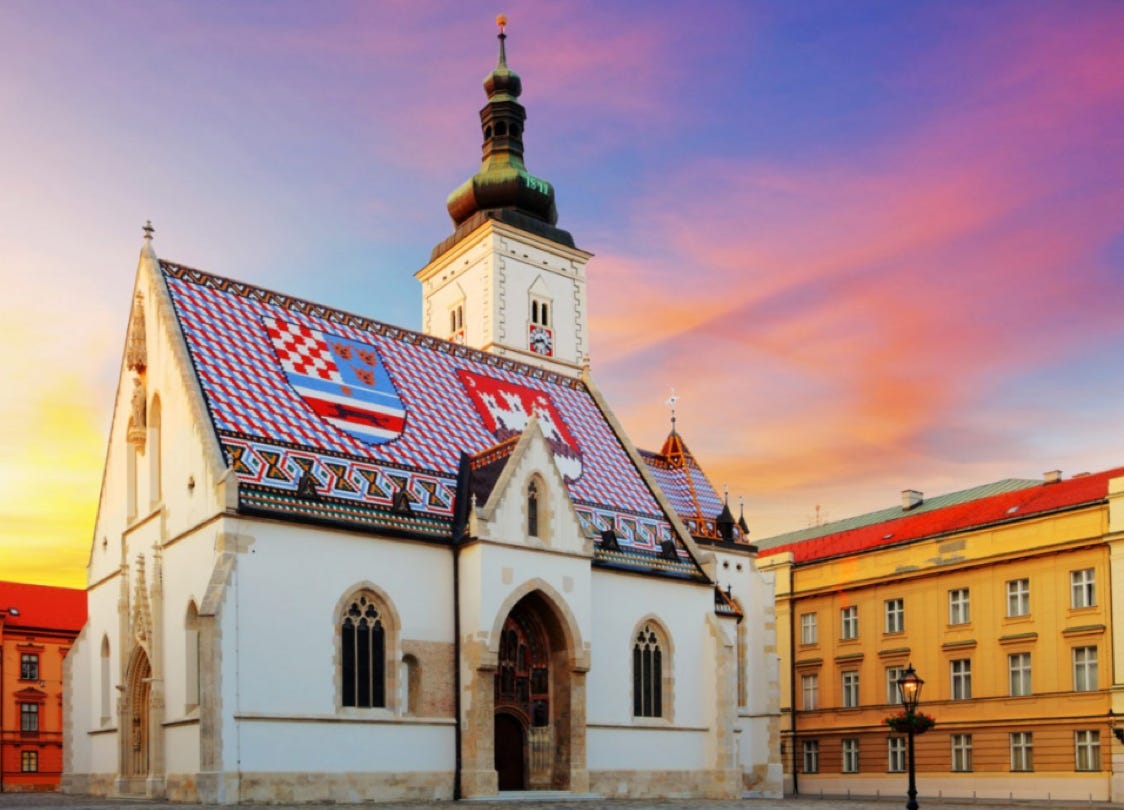
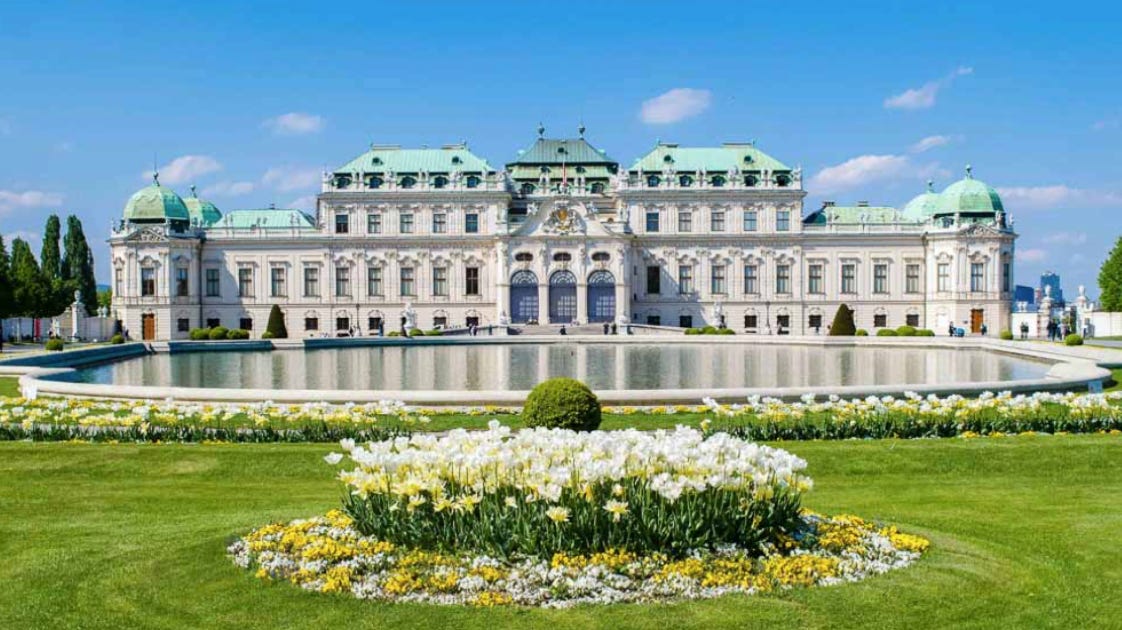
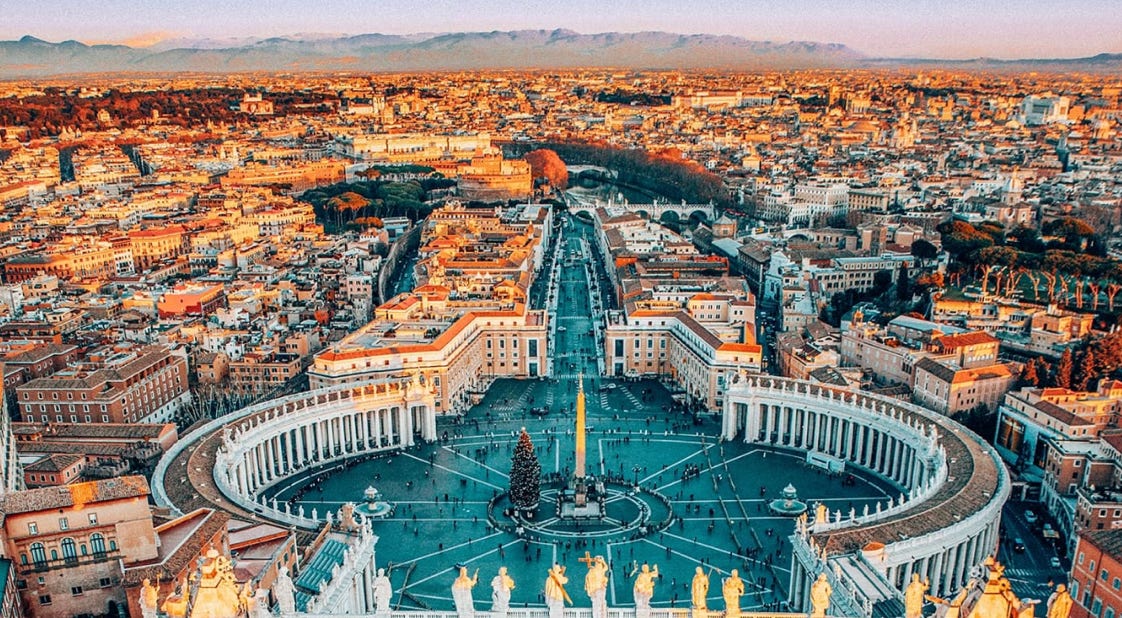
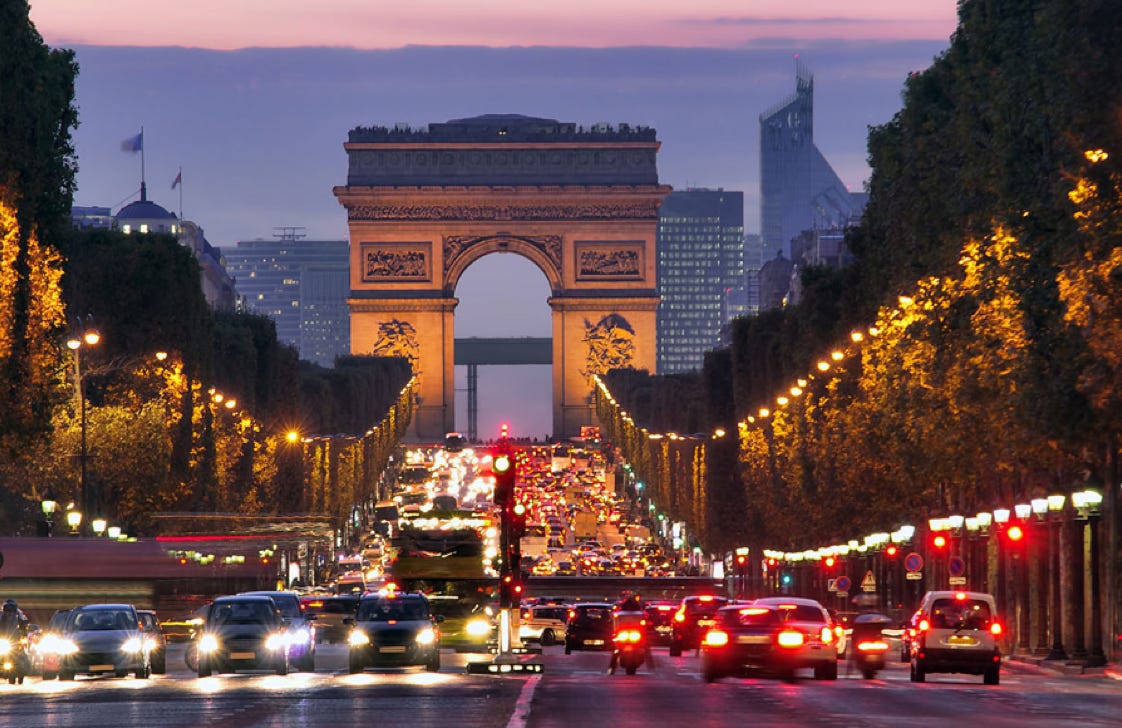
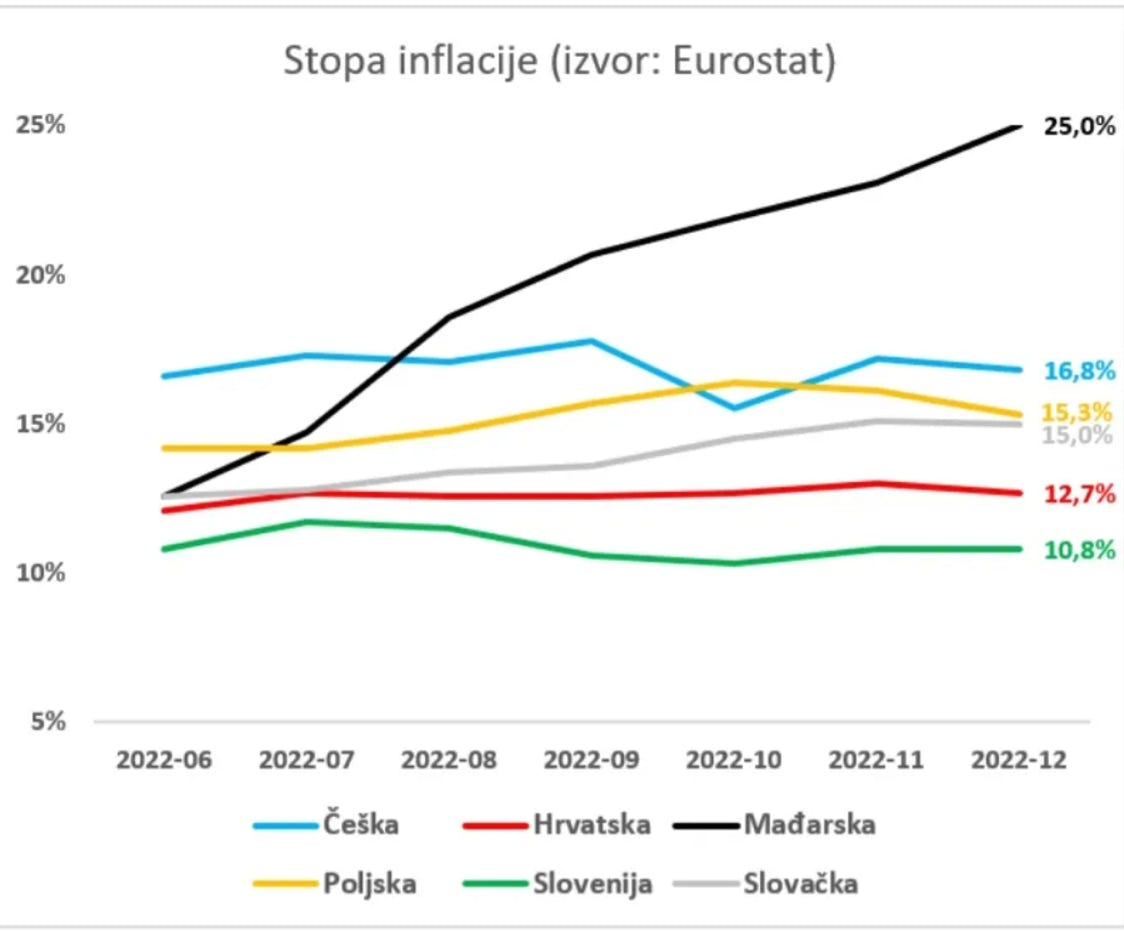
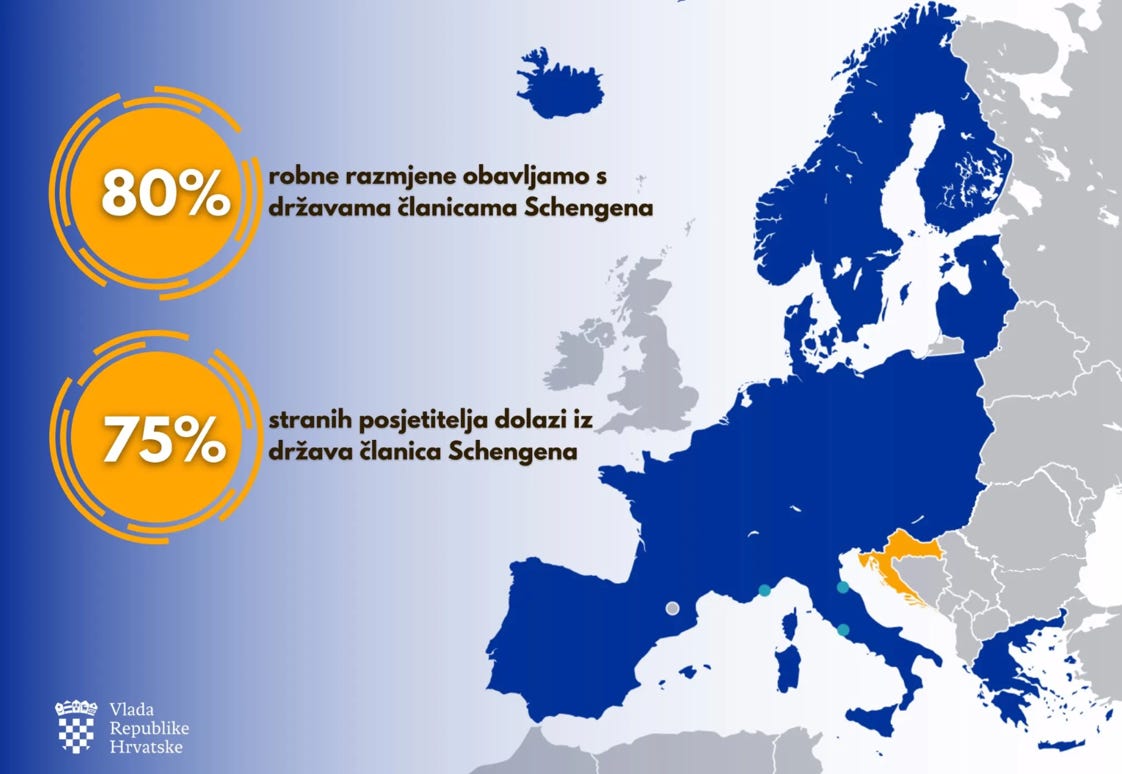
Euro – Culprit or guarantor of protection?
Not only is the euro not as much to blame for the price hikes as it is portrayed to be, but overall it has already paid off for Croatia. Namely, the positive impact on the borrowing of the state, and consequently on Croatian companies and citizens in comparison to others, probably already exceeds the costs of the introduction of the Euro and the accompanying, slightly increased inflation. But that’s just a drop in the bucket compared to the benefits that follow. In addition, in the mental sense, the euro is not the Croatian currency of yesterday. It became that as soon as it stepped on the stage as the successor of the German DM, which had been the favorite of Croatians until then. And not only when longterm savings are involved, for which the euro enjoyed two-thirds of their trust, but also all valuable goods, from the price of a car to the square footage of an apartment, were expressed in euros, while the kuna was essentially only used as a measure of the value of groceries.
In addition, for the entire time of its existence, it was in fact dragged along tightly tied to the euro, and in exceptional circumstances, for example, at the beginning of the global crisis caused by the corona virus epidemic, it had to be given artificial respiration in order not to collapse. Fortunately, Croatia then had a responsible and influential statesman at the head of the government, who won the possibility of exchanging 15 billion kuna, completely unnecessary for Europe, for 2 billion euros, which Croatia desperately needed at the time. However, as the past shows that Croatians do not always make such choices, the euro proves to be a protection against their future bad choices. In the end, to anyone who dares to ask a reasonable question - Does Croatia exist for the sake of the kuna or the kuna for the sake of Croatia? – it is crystal clear why it had to be replaced by the euro. The euro, as a better tool, simply fulfills the function of currency more comprehensively and efficiently than the kuna. In addition, it would be a shame not to take advantage of the benefits of belonging to a strong alliance, which additionally come to the fore in a world that has never been more connected by communication, and to remain alone in the windstorm. Because when you act unitedly in a powerful community, all members benefit. A good example of the effectiveness of joint European action is the drop in gas prices to a level lower than a year ago and the beginning of Russian aggression against Ukraine. So far, the strategy of the lonely cuckoo’s egg has backfired on some people, among others in the form of unbridled inflation, as the graph above shows.
Who among those who have returned home
does not feel at home in Croatia?
Almost 31 years after Europe formally recognized it, Croatia, having entered Schengen and the Eurozone, finally experienced full recognition. She described the circle by settling in the core of the most powerful European states, which is undoubtedly an event of first-class historical significance. This strategic goal was outlined by the appearance of Franjo Tuđman and the HDZ
on the political stage, gaining the undivided support of the Croatians. And since then, there is no more room for the question of whether or not to join Euro-Atlantic integration, but a constructive discussion can only be conducted within the framework of how to do it and how membership can best be used for the benefit of Croatia. In contrast, the idle, quasi-intellectual, supposedly critical weighing of the strengths and weaknesses of Croatia’s adherence to the motherland of the West is essentially a mere attack against Croatia’s first-order strategic goals. This kind of action is characteristic of individuals who, in the name of merit from the past, and under the guise of freedom of thought and speech, at first tried to cower and hide behind the HDZ, and then, left with short sleeves, Faustianly found permanent unrest under the yoke of the current tenants of Pantovčak, started spreading panic and hysteria by making an elephant out of a flea.
Therefore, there is no room for surprise with the zeal with which obscurants of precisely such profiles seek to darken the magnificent achievement of Croatian foreign policy. Proverbially disgusted by every Croatian success, they can bear anything but a successful, victorious Croatia. In this, interestingly, the actors, who see Croatia only in the Balkan integrations, agree with the despondent naïvetés, whose ideal is Our Beautiful withdrawn into herself, suspicious of the world, especially that part of it to which she belonged for centuries. The former are now treating the bitterness of defeat by rejoicing that the kuna has gone to the pit of history, thus rubbing the wound on the heart of the latter, who perceive money above all as an emotional category. Both are deeply saddened by the fact that Croatia entered the first European league.
However, they are not standing together on the wrong side of history only regarding events in Croatia, but also those in Ukraine, under the watchful eye of their spokesperson and protector from Pantovčak. On the other hand, this loyalty to the alliance to which Croatia voluntarily belongs calls for slavery and grouping into a pack. Interestingly, Aleksandar Vučić also defended himself from the remark that at the recent meeting in Davos he was put in the donkey’s seat, explaining that he does not want to be “part of that pack” not hiding his disdain for the society to which he really does not belong. Just as his colleague from Pantovčak does not belong to “that pack” for the same reasons, who knows how to go so far in his outbursts of Russophilia that even his own followers are ashamed of him. Suddenly they are not interested in him, just like he is not interested in what Russian Foreign Minister Lavrov wanted to say while praising him. But that’s why, when the parliament has to vote according to his notes, they race to see who will be the first to refuse to shake hands with Ukraine. Even now, they don’t see anything strange in the fact that, while ostensibly quoting the Ukrainian defense minister, the Russian foreign minister is praising him. These mindless followers do not see that instead of sitting on the Trojan horse, they are riding the Trojan donkey.
Congratulations from Europe, Cynicism from the Media
When someone from that flock, driven by this or that reason, disobeys the great leader and stands on the right side of history, he is the object of the most severe insults. If a female parliamentarian disagrees, she is attacked with the lowest sexist allusions. In the blink of an eye, the attacker’s pupils enlarge like a Georgian watermelon. It is illusory to expect that such an insult could provoke even a women’s rights association to speak out. On the same track, the media is also in deep hibernation. Now all 4 seasons ignore the open pro-Russian outbursts of the head in question, convinced that he is actually neutral, because he proposes to stop the war in Ukraine by denying weapons to one side--Ukraine.
They reported just as coldly that Plenković said with disgust that Milanovic had said something, creating the impression that Milanovic was doing it only to spite Plenkovic. But then Lavrov enthusiastically repeated the same thing.... The silence of Milanovic’s supporters was deafening. But perhaps the supporters of Milanovic don’t hear well? Even with a live audio recording of these statements, they deny that their beloved really said that. The creators of alternative truths, invent that Croatia is sinking, but Croatia is by far the strongest it has been in recent history.
The Croatian ship is moving forward with full sails extended along with the rest of the Western civilized world.
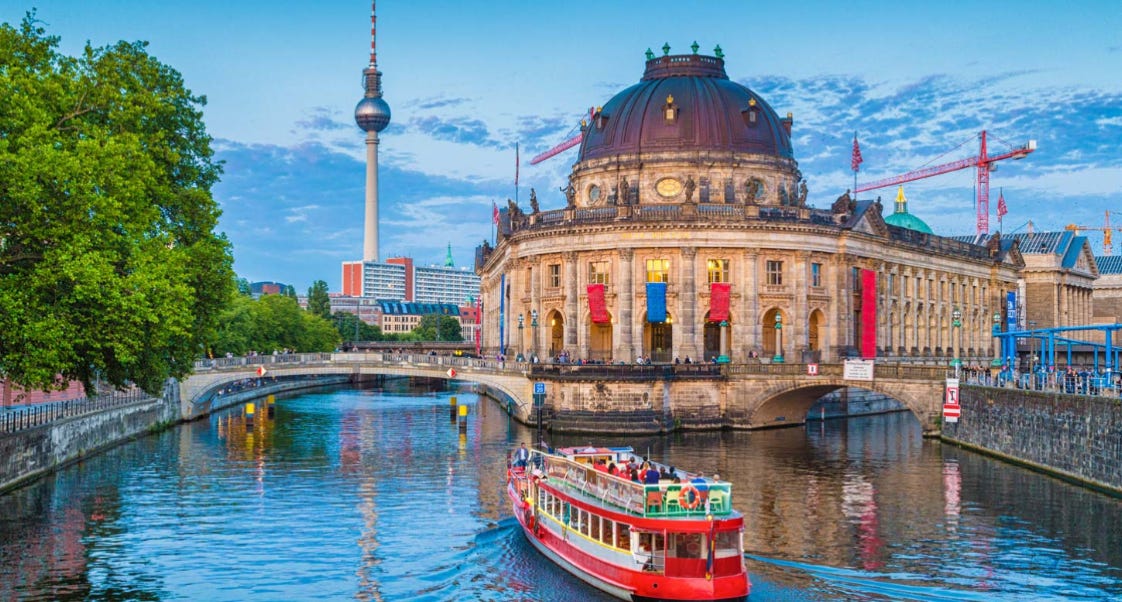
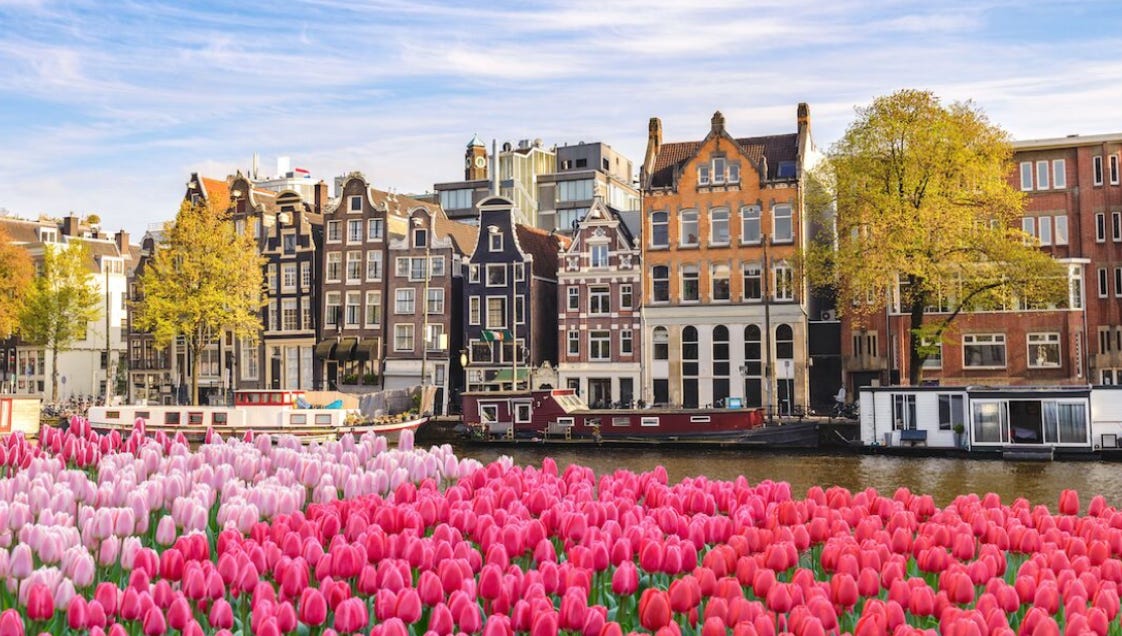
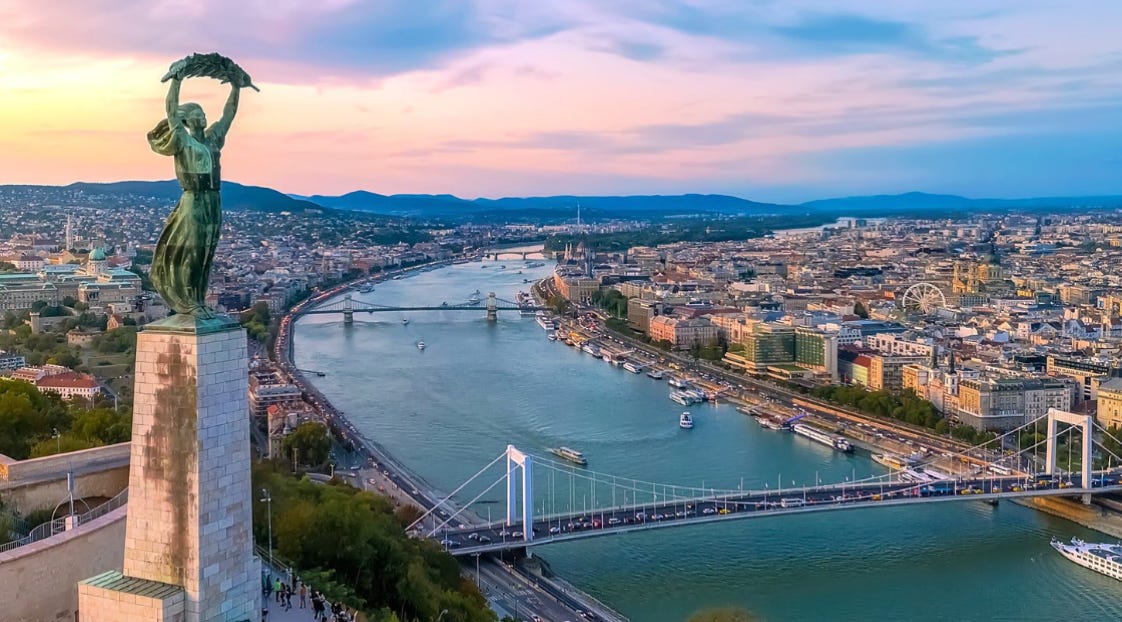
All Content © 2015 Croatian Film Institute, All Rights Reserved